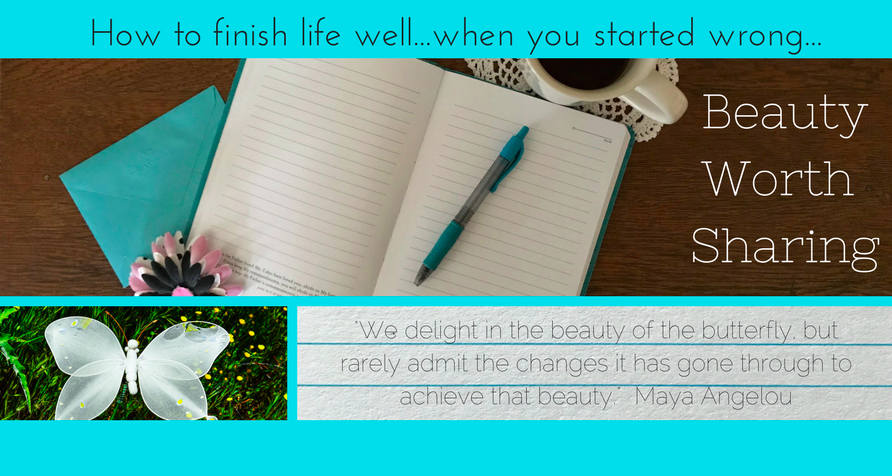Grace, Salt and Social Media
don’t say something permanently hurtful just because you are temporarily upset
Many (many, many) times after I have posted a comment (sometimes a-hasty-flippant-without-engaging-my-heart-or-brain-comment) on social media, or pushed send on the e-mail “to all” I have a sudden oh-goodness-that-probably-could-be-taken-the-wrong-way-epiphany-moment.
Can I avoid offending everyone or upsetting someone who does not agree with me? No, but I have a responsibility to offer up my opinion with grace “sprinkled with a little salt.”
Here are a few guidelines I’m trying (I’ll still need grace) to hold myself to in this say-whatever-is-on-your-mind-no-holds-bar-type-of-communication. To be clear, I’m not talking about sharing the gospel, although that too needs to be done with plenty of grace, but that’s a whole different story. This is about general conversation.
never give up the opportunity to keep your mouth shut
Elizabeth Elliot (wife of Jim Elliot), author and speaker taught me this as a young Christian. We don’t have to have an opinion on everything. It’s OK to keep our thoughts to ourselves. Better to keep your mouth shut and be thought a fool than open your mouth and remove all doubt. I forget who said that??
make sure it’s the right time to say something
Timing is everything. Often it’s better to wait for a more opportune time to say something. When I read something that rubs me the wrong way my natural hasty response is to say something that “packs a punch” right back and if I respond right away it will come across harsh. Take a breather, think about your response, pray about your response, actually read the whole post or e-mail. Maybe you misunderstood or missed something important the first time you read it. Don’t just pick up a “mob-response-mentality.”
consider a private message
This may be a better option if you feel like you must correct a wrong or address something to the writer. If I feel that everyone needs to hear what I have to say, or someone might say it first, then it’s more about me than the writer. After thinking it through carefully, ask the writer if you misunderstood what they were meaning or would they be open to hearing your opinion on the subject. You’d be surprised how receptive they are if you ask permission to engage privately in an honest debate rather than lambasting them in a public forum.
respond “with grace”
This means what you say is wholesome (no bad language), fitting, kind, positive, sensitive, purposeful, complementary, gentle, truthful, loving, and thoughtful. Will it add value to the reader(s) or tear someone down? If I can’t put a check by all these then I need to think about rewording it or just not commenting. Any time I comment when I still have even the smallest caution or doubt, I regret it. That “still, small voice” is the Holy Spirit! Don’t ignore it.
our comments/conversation/speech should be “seasoned with salt”
Just as salt on our food makes it more enjoyable and palatable, so should our words to others. We need to make sure they are pleasant, agreeable, acceptable and pleasing before we start throwing them around.
be careful what we put into our minds
The words we speak or write reveals the attitude of our heart and soul. Whatever we read, see or hear affects our thoughts. When we speak or write those thoughts become opinions. Negative thoughts will become negative words. Unwholesome or unkind thoughts will become unkind or unwholesome words. Think of it this way. If we had a water source and allowed all sorts of germs or contaminates to get into that water, what would it taste like if we took a drink from there? Would it be pleasant and helpful or would it cause harm?
make it your goal to add value to the reader
This ALONE will put a check on anything you say.
John C. Maxwell writes, “the ability to add value to others must be built upon the solid ground of believing in ourselves. The only way we can be consistent and authentic in valuing others is to see value in ourselves. The more you like and respect yourself, the more you like and respect other people. The more you accept yourself just as you are, the more you accept others just as they are. When you add value to others, there is an instant return of positive emotions that causes you to feel better about who you are. Positive thinking doesn’t build self-image. Positive acts do. If you perform positive acts, not only will your self-image begin to rise, you will find yourself living a more significant life that matters.”
Know where the delete button is and how to use it!
I use my delete or edit buttons on Facebook and Instagram a LOT. If you get that sinking feeling that you have said something unkind or unfeeling or someone may take it the wrong way, then take action and edit your comments or posts or delete them entirely. If you have already offended someone then take steps to ask forgiveness, say you are sorry or clear up any misunderstanding by contacting that person in private.
This is by no means an exhaustive list. I try to keep “advice lists” short. Many of us could add one or two excellent points of our own.

